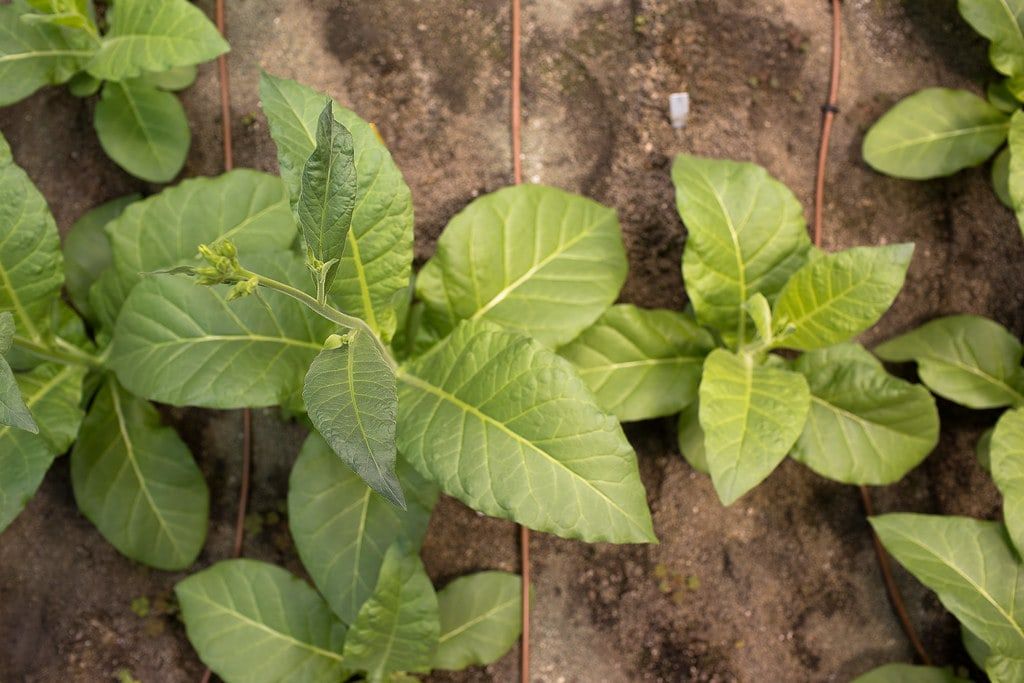News


A group of US scientists has successfully trialled a new variety of tobacco plants that grow up to 40% larger than normal.
The trial used tobacco plants that were genetically engineered to improve the capacity of photosynthesis, the process in which a plant turns sunlight, carbon dioxide and sugars into a fuel source. Naturally, photosynthesis is limited by the production of toxic compounds which are produced as a bi-product of the process. The recycling of toxins (photorespiration) uses energy that could otherwise be used by the plant to grow.
“We’ve tried three different biochemical designs with the aim of shortcutting this very energy expensive process,” said Dr Paul South from the US Agricultural Research Service.
“It’s been estimated that in plants like soybeans, rice and fruit and vegetables, it can be a significant drag on yield by as much as 36%. We’ve tried to engineer this shortcut to make them more energy efficient – and in field trials this translated into a 40% increase in plant biomass.”
Importantly, the energy requirements of photorespiration are higher during times of drought and high temperatures, so understanding how to control the issue could also help scientists engineer crops for a changing climate.
“Our goal is to build better plants that can take the heat today and in the future, to help equip farmers with the technology they need to feed the world,” said Amanda Cavanagh, a co-author on the project.
One of the most significant implications for the project is the ability for the same method to be used to improve the biomass of food crops, such as rice and wheat, and at a time when the global population is increasing and the climate is changing.
Global demand for agricultural products is set to increase by 60-120% between 2005 and 2050, but increases in crop yields are limited to around 2% per annum and many scientists agree that improving photosynthesis should be a key focus in terms of improving crop yields.
Genetically modified crops were just one in a swag of modern agricultural practises that farmer John Gladigau sought to defend in a recent open letter he penned on Facebook.
In the letter, which has been shared more than 5300 times, Mr Gladigau asked the reader to consider the benefits of GMOs.
“Yes if we are to increase our use of this technology, it needs considerable community consultation and acceptance. It does however open the door to less use of potentially harmful chemicals, better nutrition and health benefits bred into crops, and much more environmentally and sustainable farming practices,” wrote Mr Gladigau.
Mr Gladigau also concedes that there is still work to be done to improve the relationship between agriculture and food consumers.
“However, we fully understand your concerns, many which are due to us not properly explaining what GMOs are, how they work and their benefits. We also have not always gone out of our way to listen to your concerns, fully educate ourselves on potential issues or properly articulate how they could benefit us as a planet as a whole. And if in the future they are scientifically proven to cause harm — then let’s definitely steer away from them and find alternatives”.
Sources: BBC, Weekly Times
Image: “170103 RIPE Photorespiratory Bypass Greenhouse Trials_Claire Benjamin” by RIPEproject is licensed under CC BY 2.0
Get the latest industry updates
Contact Us
We will get back to you as soon as possible.
Please try again later.



